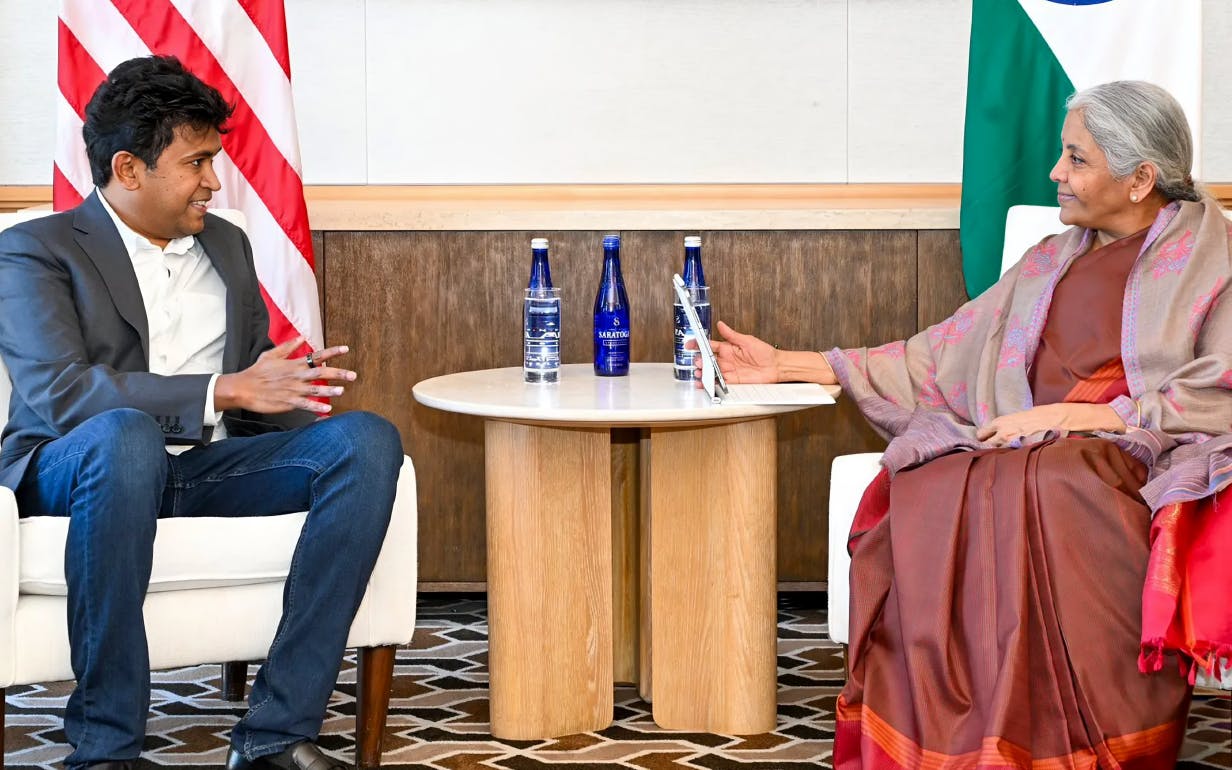“The prize is intelligence — intelligence as an API. And it will be super exciting to see how it plays out.”
— Jonathan Siddharth, CEO of Turing
At the 2025 International Conference on Learning Representations (ICLR), Jonathan Siddharth stood at the center of the AI world’s most critical conversations—advancing Artificial General Intelligence (AGI), expanding global collaboration, and demonstrating the tangible future of AI-human co-evolution. From his presentation on AI benchmarks to high-profile interviews and international meetings, Jonathan’s leadership reflected the direction Turing — and the AI ecosystem — is headed: fast, scalable, and transformational.
Redefining the AI Race: Research, Hardware, and Data
During his CNBC interview, Jonathan offered a refreshingly clear framework for how the AI landscape is unfolding:
“If you step back, the AI landscape breaks down into three main parts. There are research labs like OpenAI and Anthropic that advance the frontier of AI research. There are hardware companies like Nvidia that have advanced the hardware frontier. And then you have data companies like Turing and Scale that advance the frontier of data and applications.”
Within this triad, Turing’s position is distinctive. With over 4 million AI-vetted engineers, Ph.D.s, and STEM experts across 100+ countries, Turing isn’t just contributing to the AI revolution—it’s fueling it.
Shaping AI's Future at ICLR 2025: Beyond the Benchmark
At ICLR, Jonathan delivered a powerful message about the limitations of today’s AI benchmarks and why Turing is building the next generation.
“We’re not chasing benchmarks. We are focused on solving real-world problems,” he told the audience.
Turing’s research showed that many existing benchmarks—like MMLU for language understanding or SWE-bench for coding—are saturating quickly and failing to capture the real-world, multi-step, tool-augmented tasks that enterprises demand.
Turing’s approach is straightforward: create benchmarks focusing on practical decision-making, multimodal reasoning, and real-world workflows, not just isolated tasks. It’s an evolution grounded in reality, not theoretical perfect scores.
Building the World’s Frontier Data Engine
Turing’s scale isn’t just about numbers — it’s about specialized human knowledge fueling AI’s learning. As he said on CNBC:
“Frontier models need frontier data. And frontier data needs frontier humans,” Jonathan explained.
Through AI-driven selection processes, Turing identifies the best global talent—engineers, mathematicians, and scientists—who train and refine large models across a broad spectrum of capabilities, from agentic workflows to advanced STEM reasoning.
It becomes a virtuous loop: use AI to find humans who improve AI, then build AI applications that make humans more productive.
Expanding Global Collaboration: Leadership on the World Stage
In parallel with ICLR, Jonathan met with India’s Finance Minister Nirmala Sitharaman, highlighting AI's vital role in global economic growth. As media reports noted, Sitharaman encouraged global CEOs to participate actively in India’s technology transformation — a conversation Turing is uniquely positioned to contribute to.
This global focus was echoed in Jonathan’s CNBC remarks:
“The impact of AI will be global. We are fortunate to have incredible Silicon Valley and global investors.”
Turing’s investor base now includes entities like the sovereign wealth fund of Malaysia, reinforcing the company's international reach and trust.
Profitable, Scalable, and Neutral
In an era when many AI companies chase valuation without profitability, Jonathan proudly pointed out that Turing is one of the fastest-growing AI companies in the world. Even more impressive is that it is also profitable.
Revenue nearly doubled year-over-year, and Turing maintains a rare combination of hypergrowth and financial sustainability.
Crucially, Turing remains neutral in the competitive AI landscape:
“We kind of have to be like Switzerland,” Jonathan said. “We work with all these incredible companies building AI models. And ultimately, the beneficiaries will be all of us — every piece of technology we touch will improve dramatically.”
Unlocking Humanity’s Next Leap: Intelligence Without Limits
Jonathan closed his CNBC appearance with a bold, thrilling vision of the future:
“We've been intelligence-constrained for so long. With AI, humanity's progress will accelerate like never before.”
The barriers to innovation are falling in a world where $20 or $200 a month can buy access to world-class coding, marketing, and finance expertise through AI tools.
“A million flowers will bloom. Lots of people will become solo entrepreneurs. We’re no longer intelligence-constrained.”
Turing’s mission — to unleash the world’s untapped human potential — feels more relevant and urgent than ever.
Jonathan’s presence at ICLR 2025 wasn’t just about speaking at another conference. It was a clear signal: The next phase of AI is about making intelligence accessible to all, and Turing is leading the charge.
If you want to learn more about Turing and how we are shaping the AI landscape, check out our AGI Icons series.
Ready to turn AGI research into real-world results?
Start your journey to deliver measurable outcomes with cutting-edge intelligence.


